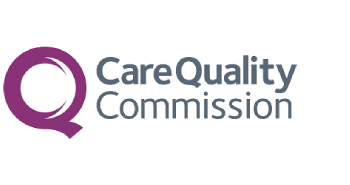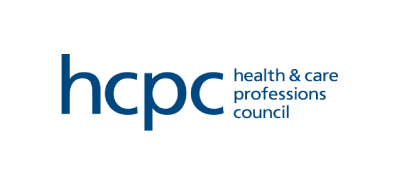Do you often find yourself staring at your computer screen, struggling to concentrate on the task at hand? If so, you’re not alone!
Many people experience difficulties with focus at work, which can stem from various factors including workplace distractions, personal habits and lifestyle choices, mental health issues, and conditions like ADHD. Understanding the reasons behind this struggle is crucial to finding effective solutions.
This article will explore why some people find it hard to focus at work, with a particular emphasis on Adult ADHD. We will also discuss potential solutions and offer advice on seeking professional help.
Common Reasons for Lack of Focus at Work
Distractions in the Workplace
Modern workplaces are full of distractions. Open-plan offices, constant emails, phone notifications, and chatty colleagues can disrupt your concentration. Here are some common workplace distractions:
- Noise Pollution: Loud conversations, office machinery, and other ambient noises.
- Digital Distractions: Social media, instant messaging apps, and frequent email notifications.
- Physical Comfort: Uncomfortable seating, poor lighting, and unsuitable office temperature.
Personal Habits and Lifestyle
Your personal habits and lifestyle choices can significantly impact your ability to focus. Some factors include:
- Sleep Deprivation: Lack of sleep affects cognitive functions and concentration.
- Poor Diet: Unbalanced nutrition can lead to energy dips and decreased focus.
- Lack of Exercise: Physical activity boosts brain function and concentration.
Mental Health
Mental health plays an important role in your ability to concentrate. Anxiety, depression, and stress can severely impact focus and productivity.
- Anxiety and Stress: Chronic stress and anxiety make it hard to concentrate on tasks, leading to a cycle of reduced productivity and increased stress.
- Depression: Symptoms of depression, such as fatigue and apathy, can make focusing on work tasks very challenging.
ADHD and Focus Issues at Work
Understanding Adult ADHD
Attention-Deficit/Hyperactivity Disorder (ADHD) is often associated with children, but it can persist into adulthood. Adults with ADHD may find it particularly challenging to maintain focus in a work environment. Symptoms of ADHD in adults include:
- Inattention: Difficulty sustaining attention in tasks, easily distracted.
- Hyperactivity: Restlessness, difficulty staying still.
- Impulsivity: Impulsive decisions, interrupting others during conversations.
ADHD and Work Performance
Adults with ADHD might experience difficulties in organising tasks, meeting deadlines, and maintaining consistent performance. This can lead to stress, job dissatisfaction, and even job loss if not managed properly. However, with the right support and strategies, individuals with ADHD can thrive in their careers.
Getting Help for ADHD
If you suspect that ADHD is affecting your ability to focus at work, seeking a professional assessment is a crucial step. KPI:Access provides comprehensive ADHD assessments that can help you understand your symptoms and find effective ways to manage them. Our neurodevelopmental specialists are highly experienced in diagnosing and supporting individuals with ADHD.
Strategies to Improve Focus at Work
Creating a Distraction-Free Environment
Noise-Cancelling Headphones: Use these to block out ambient noise.
Dedicated Workspace: Set up a specific area for work to mentally switch into work mode.
Time Management Tools: Use apps and tools to manage your time and tasks effectively.
Healthy Lifestyle Choices
Regular Sleep Schedule: Aim for 7-9 hours of sleep per night.
Balanced Diet: Eat regular, nutritious meals to maintain energy levels.
Exercise Regularly: Incorporate physical activity into your routine to boost brain function.
Mindfulness and Stress Management
Meditation: Practise mindfulness meditation to improve focus and reduce stress.
Breaks: Take regular breaks to avoid burnout and maintain productivity.
Counselling: Seek professional help for managing anxiety, depression, or other mental health issues.
KPI:Access – Your Partner in ADHD Assessments
KPI:Access is dedicated to providing accessible and affordable ADHD and ASD assessments. We focus on helping both young children and adults by offering expert diagnosis and support.
What Happens in an ADHD/ASD Assessment?
One of our neurodevelopmental specialists will conduct a thorough assessment to understand behaviours and identify potential challenges. This comprehensive evaluation helps in providing the best possible support for you.
Why Choose KPI:Access?
Get Seen Fast: Book an assessment and see our clinical team within a few days.
Self Referral: There is no need for a GP referral to book an assessment with us.
No Exclusions: We have a no-exclusion policy, ensuring every individual booked receives an assessment.
Our Story
KPI:Access is a division of KPI: Health, an NHS partner and insourcing company committed to reducing waiting times and enhancing healthcare efficiency. Our team identified a lack of support within Children Services and the high costs of private assessments. KPI:Access was established to bridge this gap, providing affordable and accessible ADHD and ASD assessments.
Get In Touch
If you are struggling to concentrate at work and suspect that ADHD might be the cause, don’t hesitate to get in touch with KPI:Access. An ADHD diagnosis can open up new opportunities for support and strategies to help you succeed in your career.
Contact us today to book an assessment and take the first step towards better focus and productivity.





